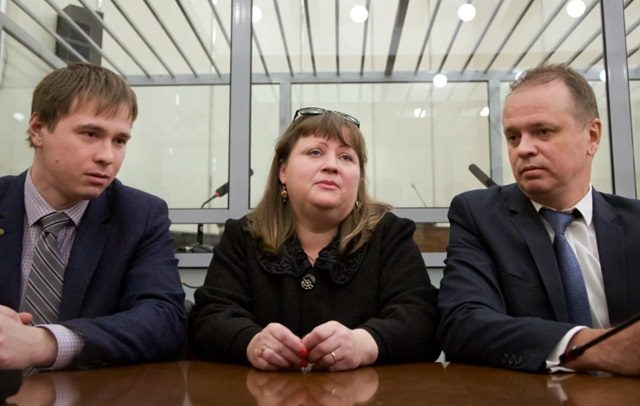BTN News: Over the past decade, Russia has seen a significant rise in cases of treason and espionage. Experts and legal analysts trace this trend back to 2014, the year Russia illegally annexed Crimea from Ukraine and supported a separatist insurgency in eastern Ukraine. The situation escalated further in February 2022 when Russia invaded Ukraine, prompting President Vladimir Putin to urge security services to “severely suppress the actions of foreign intelligence services and quickly identify traitors, spies, and saboteurs.” This intensified crackdown has ensnared scientists, journalists, and ordinary citizens. Here, we explore some notable treason cases prosecuted in recent years.
Oksana Sevastidi: A Text Message That Changed Everything
In April 2008, Oksana Sevastidi, a baker from Sochi, observed military equipment on the railway tracks near her city. She texted a friend in neighboring Georgia about it. A few months later, Russia and Georgia engaged in a brief war, after which Moscow recognized South Ossetia and Abkhazia as independent states. Sevastidi’s message came back to haunt her in 2015 when she was arrested and later convicted of treason in 2016. Her case gained national attention when prominent lawyers Ivan Pavlov and Evgeny Smirnov took it up. Even President Putin acknowledged her harsh sentence during his annual press conference, and in 2017, he pardoned her and two other women.
Ivan Safronov: Journalist Turned Spy?
Ivan Safronov, a former journalist who worked for the Russian space agency Roscosmos, was arrested in 2020. He was accused of passing military secrets to Czech intelligence and a German citizen. Despite his adamant denials and claims that all his information came from open sources during his journalistic work, Safronov was sentenced to 22 years in prison in September 2022. His colleagues condemned the verdict as baseless, suspecting it was retaliation for his reporting on military and space issues. His fiancée, Ksenia Mironova, a journalist herself, criticized the secretive nature of treason trials, arguing that such cases allow authorities to fabricate charges without accountability.
Valery Golubkin: The Physicist’s Plight
Valery Golubkin, a physicist specializing in aerodynamics, was arrested in 2021 and convicted of treason in June 2023, receiving a 12-year sentence. Authorities accused him of sharing state secrets with a foreign country. Golubkin and his defense team contended that his reports on a hypersonic civil aircraft project, approved by state regulations, did not contain any classified information. The case was based on the testimony of his supervisor, Anatoly Gubanov, who had been arrested earlier and also convicted of treason. Despite an appeal, Golubkin’s sentence was upheld. His daughter, Lyudmila Golubkina, expressed hope that he might be granted parole after serving two-thirds of his sentence.
Igor Pokusin: From Protest to Prison
Igor Pokusin, a retired pilot born in Ukraine, was arrested in Abakán, Siberia, for protesting Russia’s invasion of Ukraine in 2022. Initially sentenced to six months of restricted freedom for vandalism, he was later re-arrested for “preparing for treason.” The charges stemmed from his phone conversations with relatives and friends about moving to Ukraine to volunteer for humanitarian efforts. In January 2024, Pokusin was convicted and sentenced to eight years in prison. Tragically, he died in custody in June. Human rights activists, including those from Memorial, Russia’s oldest and most prominent rights group, have called for Pokusin and others accused of treason to be recognized as political prisoners.
A Broader Picture of Repression
These cases highlight a broader pattern of repression in Russia, where charges of treason and espionage are often used to silence dissent and control information. The secretive nature of these trials, coupled with severe sentences, serves as a warning to others who might challenge the government’s narrative. Legal experts argue that this trend undermines the rule of law and human rights in Russia, creating a climate of fear and suspicion.
Conclusion: The Ongoing Struggle for Justice
The increasing number of treason and espionage cases in Russia reflects a tightening grip on civil liberties and freedom of expression. As the government continues to crack down on perceived threats, the stories of individuals like Oksana Sevastidi, Ivan Safronov, Valery Golubkin, and Igor Pokusin remind us of the human cost of political repression. Their experiences underscore the importance of international awareness and advocacy in the fight for justice and human rights.
In summary, the rise in treason and espionage cases in Russia over the last decade highlights a troubling trend of using legal mechanisms to suppress dissent and control information. The cases of Sevastidi, Safronov, Golubkin, and Pokusin illustrate the personal and societal impact of this repression, emphasizing the need for continued vigilance and support for those who stand up for truth and justice.


